Shocking Blue’s ‘Venus’: An Out-of-This-World Hit
by Best Classic Bands Staff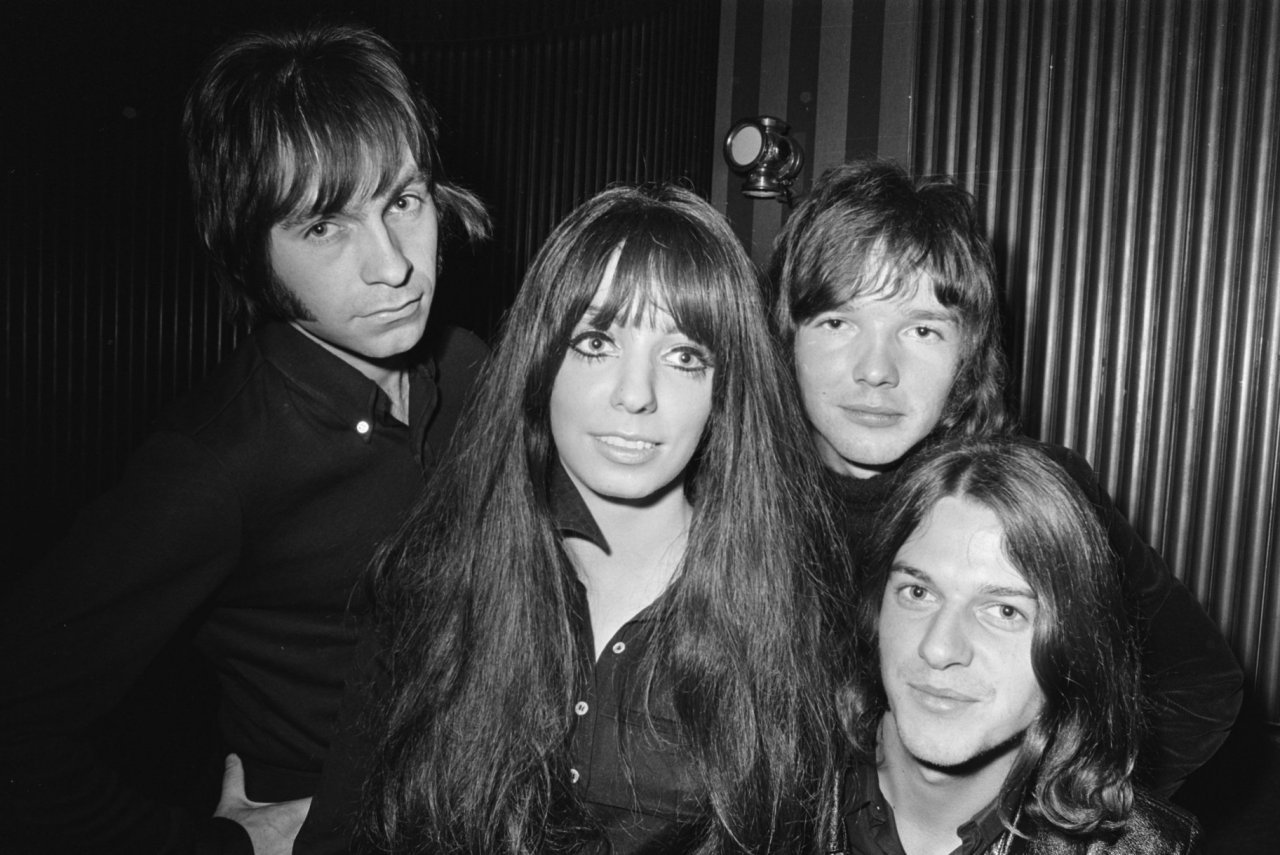
Shocking Blue in 1970 (Photo: Nationaal Archief, Den Haag, Rijksfotoarchief: Fotocollectie Algemeen Nederlands Fotopersbureau)
The Top 40 charts during the classic rock era are filled with one-hit wonders. But what if the outlier in your recorded output is a #1 pop smash in the U.S. and many other countries that holds up today and still receives airplay? For the Dutch rock band, Shocking Blue, that song was 1969’s out-of-this-world “Venus.”
Best Classic Bands frequently shines a light on some of the memorable music that was produced during this period that doesn’t receive as much acclaim as the superstars of the era.
Shocking Blue was formed in 1967 by then-23-year-old musician Robbie van Leeuwen in the Netherlands city The Hague. After modest success, singer Fred de Wilde departed the band. They boldly switched from male to female vocalists when they invited a local 21-year-old, Mariska Veres, to replace him.
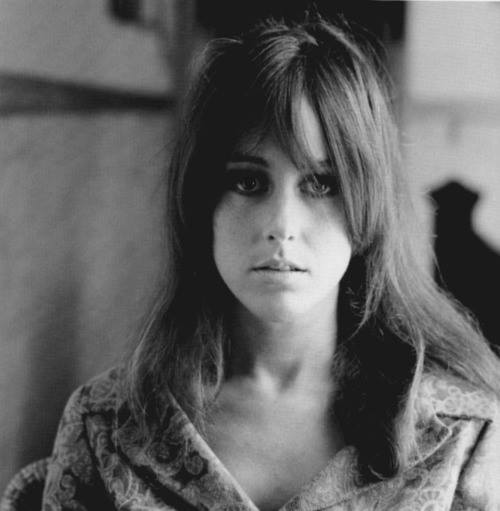
Grace Slick via her Facebook page.
Veres had more than a passing resemblance to Jefferson Airplane’s Grace Slick, who was as big a music star as there was in the fall of 1969, just weeks after the band’s performance at the Woodstock festival. Both Slick and Veres shared a husky voice, long dark hair and a striking appearance.
In October 1969, the paths of Shocking Blue and Jefferson Airplane criss-crossed, in a sense. For the latter, it marked the release of the title cut from their Volunteers album. The single was just a modest hit, peaking at only #65 on the national pop charts.
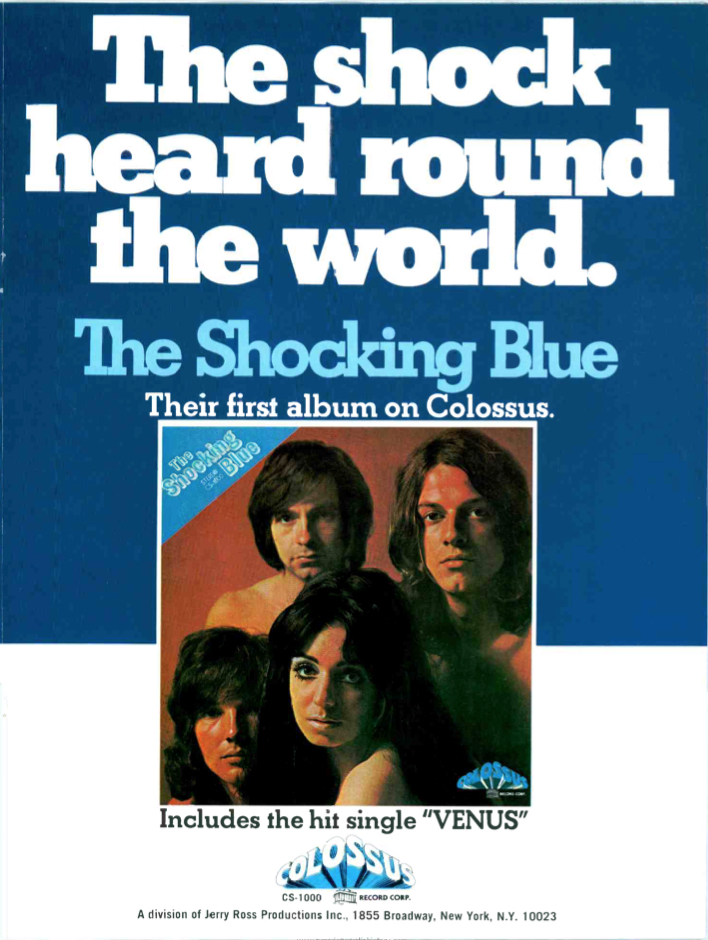
This ad appeared in the Feb. 7, 1970 issue of Record World.
For Shocking Blue, and their young singer so reminiscent of Slick, “Venus” enjoyed otherworldly success. The song’s ascent was slow on U.S. Top 40 stations. More than two months after its October 2 release, it finally charted at #91 on Record World‘s Dec. 6 singles chart. In just one week, it jumped to #50 By the end of the year, it was at #21.
At the start of a new decade, on February 7, 1970, it was the #1 hit in the U.S. and in many other countries, selling a reported 7.5 million copies.
Related: Top radio hits of 1970
Shocking Blue continued to have hit singles in Holland and several neighboring European territories but never came close to duplicating the galactic success of “Venus.”
The song has been covered by many other artists, most prominently by the British trio Bananarama, who enjoyed a #1 hit with it in 1986.
Singer Veres left Shocking Blue in 1974 and ultimately started a jazz group, the Shocking Jazz Quintet. Born on Oct. 1, 1947, she died of cancer on December 2, 2006, at just 59. The band’s recordings are available here.


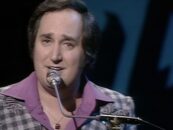
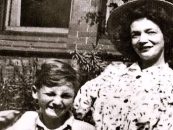
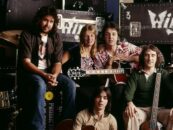
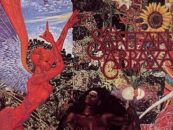

8 Comments so far
Jump into a conversationShocking Blue was one of the greatest pop/rock bands between 1969-74. Almost all the tracks were composed by Robbie van Leuuwen and there’s hardly weak track at all. When you think of writing great pop/rock song he was nearly one man Lennon/McCartney. Shame that almost everybody remember only track “Venus”!
Indeed, Shocking Blue was considered a psychodelic rock band, and “Venus” was written as a more “dance friendly” song. Nirvana covered Shocking Blue’s “Love Buzz” as their first single.
“Venus” was actually “borrowed” by Robbie van Leeuwen from Tim Rose’s version of “The Banjo Song” as performed by The Big Three in 1963 on their LP. Tim Rose in turn adapted it from Stephen Foster’s “Oh Susanna”. See http://www.secondhandsongs.com
I saw The Shocking Blue in concert in Chicago in Spring 1970, when they were riding high on the success of “Venus”. They were just the opening act, but they came out & killed it with a short, energetic set. Mariska was wearing some cool “shocking blue” make-up.
Marvellous band .
All their songs are still exciting today.
There has been a huge revival of Shocking Blue and the song Venus resulting from the magnificent Queen’s Gambit…seriously, check out the scene when the remarkable Anya Taylor-Joy imitates Mariska…
I believe SB said they stole the opening riff from Pete Townshend’s “Pinball Wizard”.
Back when a “Top 40” station might actually play songs that were just heading up the Hot 100 or even “Bubbling Under”, I remember my local station playing the second follow-up to “Venus”, which was “Never Marry A Railroad Man”.
and their second song to me even better a very catchy song as well, a fave too & that is Mighty Joe